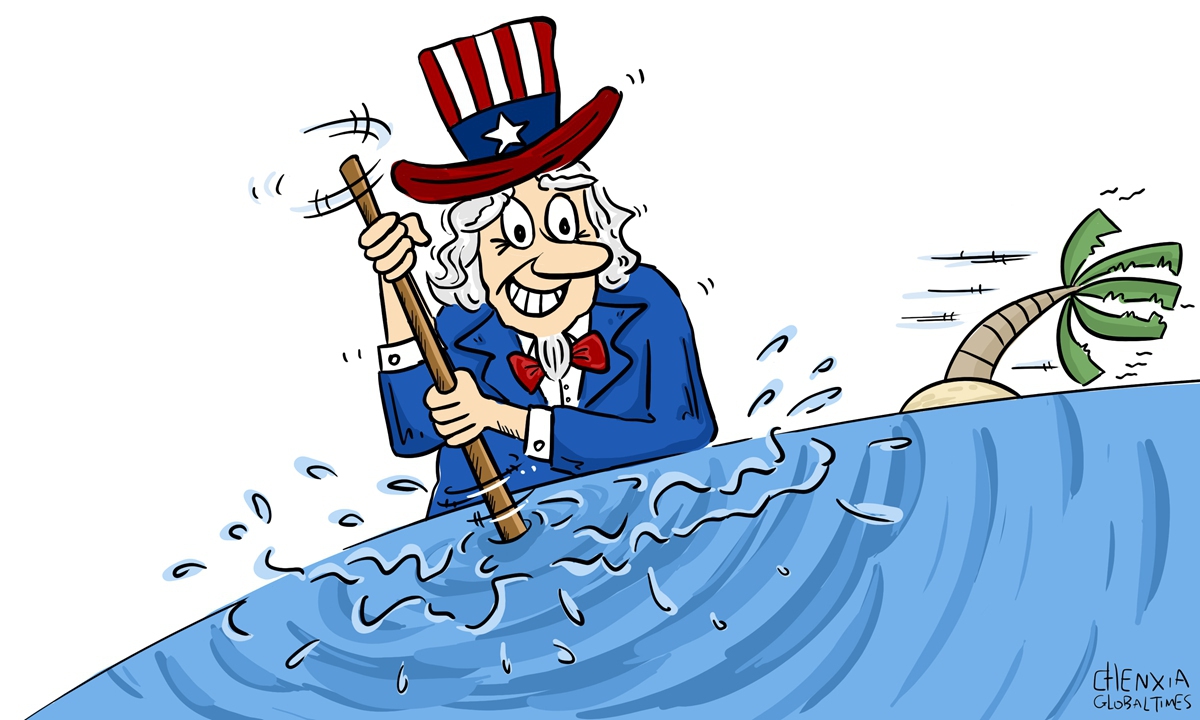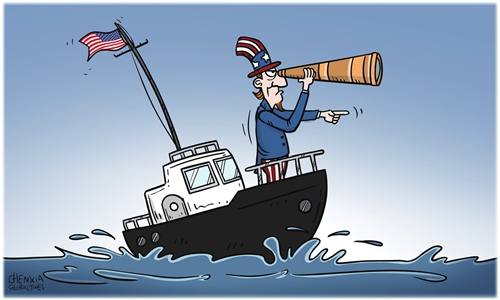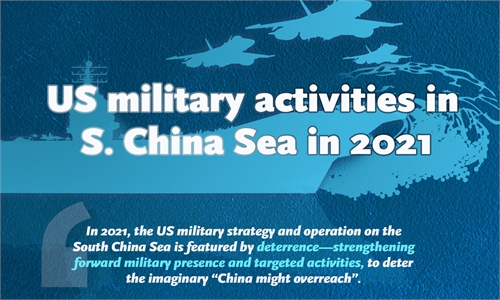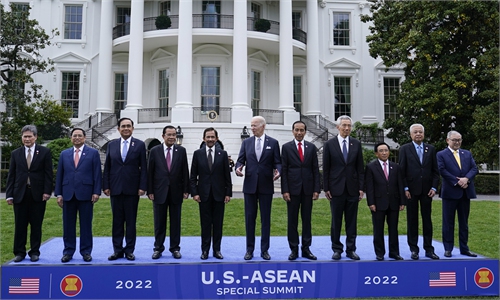
See who is making waves in the South China Sea. Illustration: Chen Xia/Global Times
In the latter half of the month, China and ASEAN members will have face-to-face consultations on the Code of Conduct (COC) in the South China Sea in Cambodia despite the still ongoing COVID-19.China has been making unremitting efforts for peace and stability in the region as well as pushing forward COC negotiations. Against the backdrop in which the epidemic is still wreaking havoc, the face-to-face consultations with ASEAN members demonstrates the importance China attaches.
The US-ASEAN Special Summit ended on May 13 and Washington's intent to rope in Southeast Asian countries to counter China failed once again. Several factors triggered the result.
First, the attention and measures Washington paid and made for ASEAN were far from sufficient.
For example, at the summit, the US pledged only $150 million in investment to ASEAN, in sharp contrast to the bill passed by the House which states the country would provide $40 billion in aid to Ukraine. Furthermore, the US did not share more details of its Indo-Pacific Economic Framework at the summit as expected. Instead, the framework will reportedly be formally launched during US President Joe Biden's planned visit to Japan later this month, when he will meet Japanese Prime Minister Fumio Kishida and attend the Quad summit with top leaders from Japan, Australia, and India. This shows Washington prioritizes these countries ahead of ASEAN.
In addition, the US' failure to woo ASEAN also has something to do with ASEAN members' foreign policy. Most of them adhere to a balanced strategy between major powers, which is fundamentally different from the US' insistence on establishing an alliance against China.
"As Southeast Asia has been placed in a prominent position in Washington's Indo-Pacific Strategy, more of its attempts to court ASEAN members will be witnessed," Li Kaisheng, a research fellow at the Shanghai Academy of Social Sciences, told the Global Times. "The US sees the South China Sea issue as an important leverage to contain China in the region. But judging from the current situation, it's hard to drive a wedge between China and ASEAN by hyping the South China Sea issue. It can be concluded that it will be difficult to tie Southeast Asian countries to the US' anti-China chariot despite ramping up efforts."
Washington has repeatedly expressed its "concern" over the South China Sea issue. Washington is not concerned with how to solve the issue as soon as possible, or how to ensure regional peace and security, but how to make the issue continue to ferment and complicate the situation to undermine China's relations with ASEAN. Such a result will be more favorable to the US. The more the US is "concerned," the less conducive it will be to the peaceful settlement of the South China Sea issue.
The key to solving the South China Sea issue is to rely on negotiations between China and ASEAN members. As a regional country, China has common interests with ASEAN members - maintaining peace and stability. China's efforts to resolve the issue are consistent and proper. For example, China insists on advancing the COC negotiations and tackling disputes through consultations.
Unlike China, because of its two-party system, US' foreign policy, including the one toward Southeast Asia, remains an uncertainty. As a country outside the region but seeking global hegemony, the US only cares how Southeast Asia serves its strategy in containing and cracking down on China. This can explain why the US has lost the trust of regional countries.



